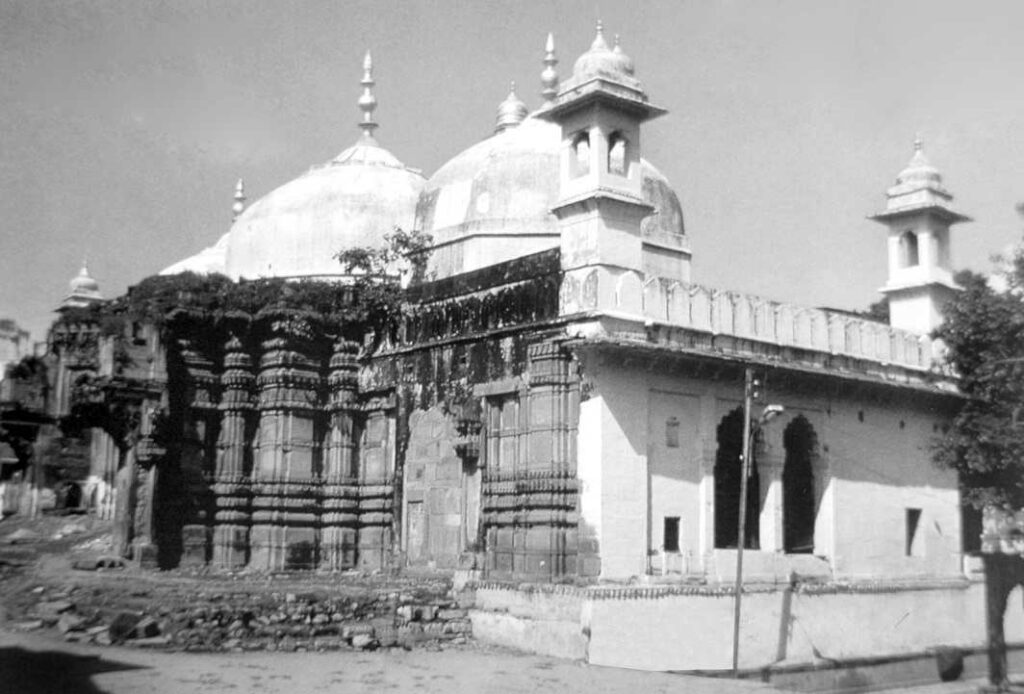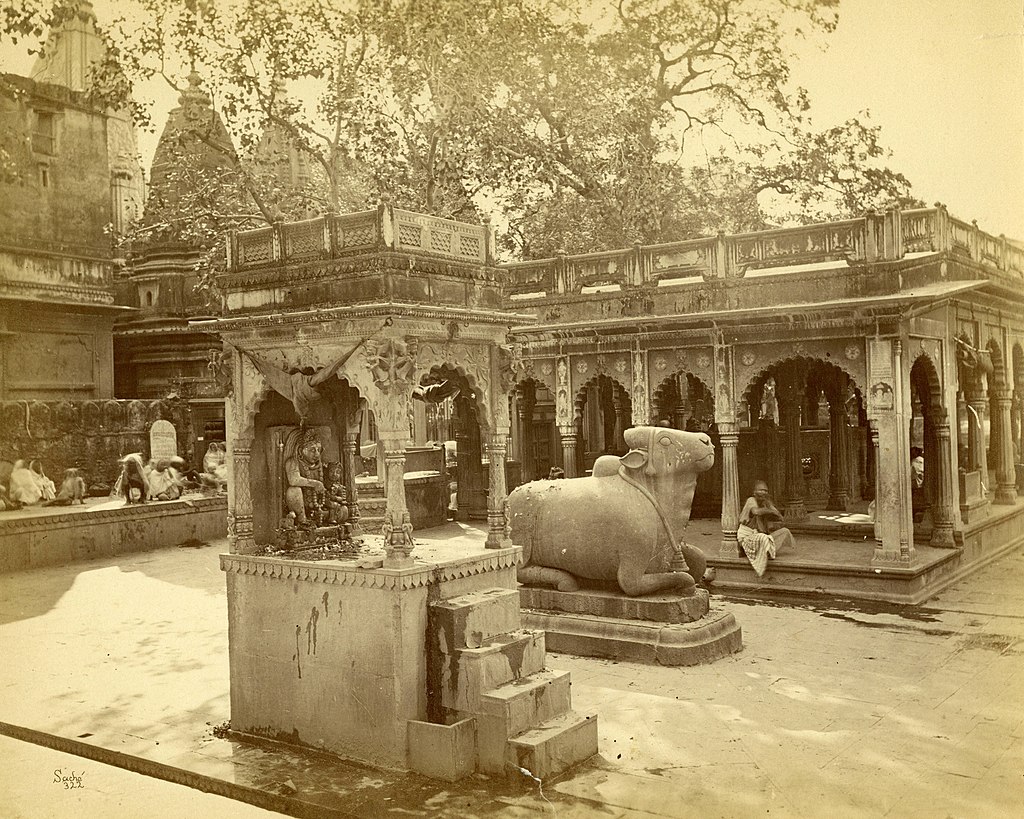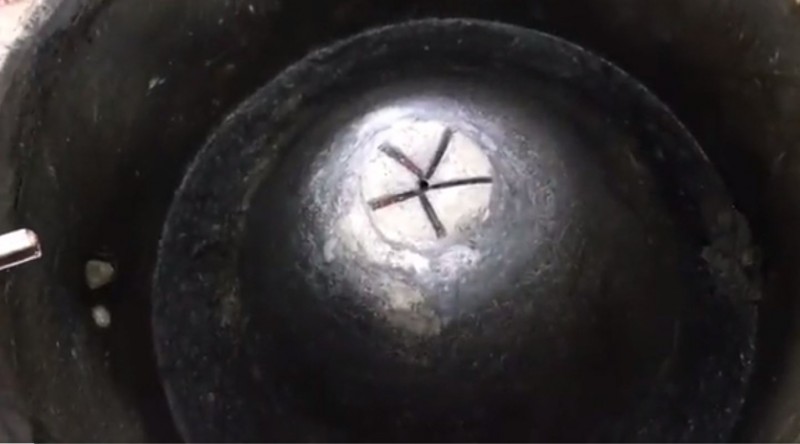There is a controversy over the Gyanvapi Mosque in Varanasi
The Hindu side has got the right to worship Shringar Gauri regularly at Gyanvapi in Varanasi. The Allahabad High Court has rejected the petition of the Anjuman Intezamia Mosque Committee. Justice JJ Munir has given this order.
In the famous Gyanvapi case of Uttar Pradesh, the Allahabad High Court has rejected the petition of the Anjuman Intezamia Mosque Committee, in which the committee said that the case filed by the Hindu side regarding the regular worship of Shringar Gauri is not maintainable.

Allahabad High Court judge dismissed the petition
While hearing the petition, Allahabad High Court Justice JJ Munir dismissed it. The High Court has allowed the matter to be heard in the lower court.
The district court rejected the petition
It is noteworthy that nine women, including Rakhi Singh, had filed a civil suit in the District Court of Varanasi, in which they sought the right to worship Shringar Gauri regularly. On this, the Anjuman Intezamia Masjid Committee has no jurisdiction to hear the case under the provisions of the Places of Worship Act (1991).
However, the committee’s petition was rejected by the district court and the decision was reserved in December. The committee challenged the rejection of its petition by the district court in the High Court.
Notably, several petitions related to the Gyanvapi case are pending in various courts. Some cases are also in the High Court. The Supreme Court is also keeping an eye on the Shringar Gauri case.
The Gyanvapi dispute has been taking a backseat for a long time, earlier the Babri Masjid dispute also reached the Supreme Court from the High Court in this way.

What is the Gyanvapi controversy?
In 1991 – a year before the demolition of the Babri Masjid – a group of priests in Varanasi filed a petition in the court seeking permission to worship in the Gyanvapi Masjid premises.
Thirty years later, in 2021, the Allahabad High Court stayed the controversial archaeological study of the site to find out whether a Hindu temple was partially demolished to build the 17th century mosque. The Allahabad High Court had ordered a stay on the proceedings in the Kashi Vishwanath Temple-Gyanvapi Masjid case in a court in Varanasi.
Five Hindu women who wanted to worship Shringar Gauri and other idols inside the Gyanvapi Masjid complex had knocked on the doors of the court last year, giving impetus to the current issue.
Shivling or fountain in the mosque?
After receiving a petition in April, a Varanasi court had made video surveillance of the Gyanvapi Mosque complex mandatory.
The survey report was earlier to be filed by May 10. However, it was delayed as the Mosque Committee and the Uttar Pradesh Sunni Central Waqf Board opposed the order.

The survey of the Gyanvapi Mosque was completed on May 16. According to the Hindu side in the dispute, a “Shivling” was allegedly found during the survey inside the reservoir on the mosque compound. On the other hand, the Muslim side rejected this statement and claimed that it was just a “fountain”. Video footage of the entire incident was circulated on social media.
Amidst the pressure for the construction of the Ram Temple in Ayodhya and the Krishna Janmabhoomi-Shahi Idgah Mosque in Mathura, the BJP, Vishwa Hindu Parishad (VHP) and RSS raised the issue of the Kashi Vishwanath Temple-Gyanvapi Mosque. They asserted that the three mosques were built after the destruction of Hindu temples. The debate has taken a predictable course as both the Muslim and Hindu sides have strengthened their respective positions.
According to Uttar Pradesh Deputy Chief Minister Keshav Prasad Maurya, the survey has revealed the truth.
Places of Worship Act back in the limelight
According to the All India Muslim Personal Law Board (AIMPLB), the Places of Worship Act, 1991, which seeks to protect the status quo of 1947 with respect to all places of worship, was allegedly violated by the court’s judgment allowing videotaping. The law came into force on July 11, 1991.
Section 4(1) of the Act states: “The religious character of a place of worship existing on the 15th day of August 1947 shall remain the same as it existed on that day.”
As per Section 4(2) of the Act, any suit, appeal or other legal proceedings which were in existence on August 15, 1947 and were pending before any court, tribunal or other authority, shall be withdrawn.
It further states that no fresh legal proceedings shall be instituted in these cases.
As per Section 3 of the Act, a religious facility shall not be converted in any manner, not even to accommodate a particular branch of religion.
It states, “No person shall convert any place of worship of any religious sect or section thereof into a place of worship of any other religious sect or section thereof or into any other section of the same religious sect.”
According to the Masjid Samiti, the new suits filed in 2021 asserting the “right to worship” were “barred by The Places of Worship Act, 1991” and were an attempt to revive a dispute which had been resolved by the Act.

Ram Lalla’s land is excluded from this law
The Ayodhya issue is excluded from the law. As per Section 5 of the Act, the Ram Janmabhoomi-Babri Masjid case is exempted from the provisions of the Act.
Nothing under this Act “shall apply to any suit, appeal or other proceeding relating to the place or place of worship known as Ram Janmabhoomi-Babri Masjid situated in Ayodhya in the State of Uttar Pradesh,” it states.
“To provide a guarantee for the preservation of the religious character of places of public worship as they existed on August 15, 1947, and against the conversion of places of public worship, Parliament has decided that independence from colonial rule provides a constitutional basis for redressing the injustices of the past by presiding over the Ayodhya case,” a Supreme Court bench headed by former Chief Justice of India Ranjan Gogoi had said in its 2019 Ayodhya case verdict.
The Places of Worship Act of 1991 was challenged in the Supreme Court last year by BJP politician and lawyer Ashwini Kumar Upadhyay. According to him, the law goes against the principle of secularism enshrined in the Indian Constitution.
Hindus, Jains, Buddhists and Sikhs will no longer be able to file a case under Section 226 or approach the High Court as the Centre has barred remedies against illegal encroachment on places of worship and pilgrimage sites. Therefore, the illegal encroachments of the invaders will continue indefinitely, and according to Upadhyay’s appeal, they will not be able to reclaim their places of worship and pilgrimage sites, including temple shrines, under Sections 25 and 26.
The petition was filed on the “claim of the birthplace of Lord Krishna in Mathura”, which is subject to the limitations imposed by the 1991 Act.
The Supreme Court is currently hearing a separate case by the Vishwa Bhadra Pujari Purohit Mahasangh, which is challenging the validity of the law.
The then Chief Justice S.A. A Supreme Court panel headed by Justice Bobde agreed to review the legality of the Places of Worship Act in March 2021.
Survey begins
Five women filed a fresh suit seeking permission to worship Hindu deities with idols outside the Gyanvapi mosque. The court has also authorized a committee to inspect and take videos of the basements of the Gyanvapi-Gauri Shringar complex.
The mosque committee had objected to the survey, claiming that the court-appointed advocate commissioner lacked the authority to take videos inside the mosque grounds. As a result, the survey was stopped.
Two basements in the Gyanvapi-Gauri Shringar complex were surveyed and videotaped by the committee after the exercise resumed on May 14 amid heavy security measures.
Political implications of mosque or temple dispute
Meanwhile, the current Gyanvapi controversy has too many political consequences to ignore.
After the Ram Janmabhoomi temple controversy, Hindu organisations have found a new topic to inflame Hindu sentiments ahead of the 2024 Lok Sabha elections.
“Now that we have built a grand Ram temple in Ayodhya, it is our duty to free Krishna Janmabhoomi from the Gyanvapi mosque in Kashi Vishwanath Dham and then the Idgah in Mathura to Lord Shiva. This is our promise to the people,” a senior BJP leader said on condition of anonymity.
BJP strategists are fully aware that the opposition cannot take a partisan stance on the issue as doing so will deny them the support of the majority Hindus.